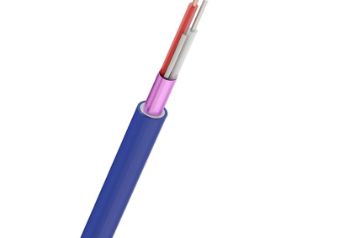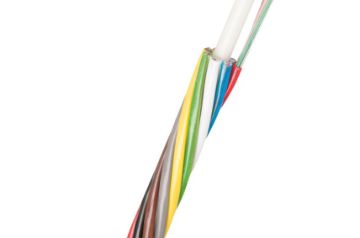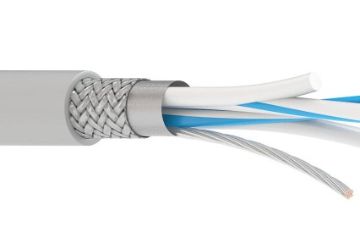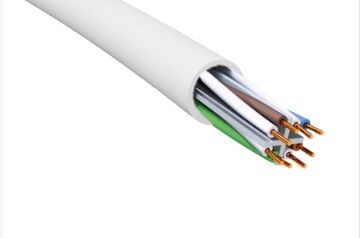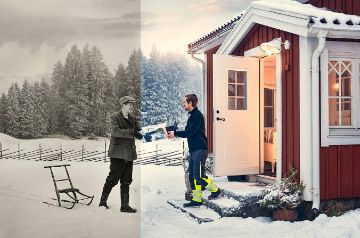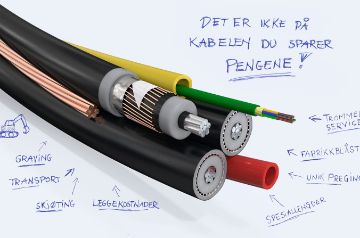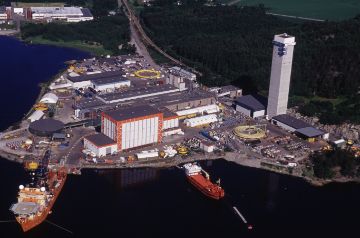- Products
- Segments
- Newsroom
- Tools and Resources
- Sustainability
- We are Nexans
- Search
- Contact us
- Compare
- Sign in
CSR
Nexans Langhus second ISO 50001-certified Nexans factory in the world
Jan 16, 2023/Terje-Torbjørn_ISO50001-sertifikat_liten.jpg/jcr:content/Terje-Torbj%C3%B8rn_ISO50001-sertifikat_liten.jpg)
In 2022, Nexans Langhus became the second Nexans factory in the world with an ISO 50001 certification. The certification is an important step towards Nexans goal of contributing to carbon neutrality by 2030* (2026 locally at Langhus).
- When I heard that we were to contribute to carbon neutrality by 2030*, I realized that we had to look at our own energy consumption here at the factory. I asked myself if we could improve, and if we could use less electricity, says Terje Pedersen, QHSE-manager at Nexans Langhus.
So it was he who took the important initiative and started the work to make Nexans Langhus 50001 certified. A team consisting of technical manager Geir Ivar Holberg and maintenance manager Anders Olsen, in addition to Pedersen, are the ones behind the work with the approval and the future follow-up of the project. But the work does not end with the certificate. Now new targets must be made and followed up in the future to keep the certificate.
The ISO 50001-certification is about energy management. In order to be certified, Nexans must gain an overview and take control of the energy consumption in the factory and treat energy consumption in the same way as a budget. Moreover, we have to reduce the consumption.
- The aim is to know exactly how much energy we use per meter of cable that we produce, says Pedersen.
Provides a lower climate footprint
Reducing energy consumption from the factory is good for both the planet and the economy at Langhus. More and more customers, partners and end users are concerned that suppliers and manufacturers are careful with their own climate footprint.
- We already see that more customers are asking when we - and other manufacturers - plan to become certified, says Pedersen.
Even more important is that the focus on reducing energy consumption from the factory in the long run also contributes to reducing the climate footprint.
This also reduces the climate footprint of our products.
Everyone must contribute
This is not the first time Nexans has worked on energy-reducing projects. Previously, energy consumption was reduced by 20%. Now the target is a further reduction of 5% per year.
However, in order to reduce the consumption, it is important that the entire company cooperates.
- Everyone must contribute in their own way. The employees can contribute a lot by turning off the lights when they go home from the factory and the office, and by turning off the machines when they are finished or when they are not used. Through such simple measures, we can avoid wasting energy, says Pedersen.
- Energy consumption is also something we must keep in mind when we develop new products. We must dare to challenge ourselves by asking critical questions. How much resources are required to make this cable? Can we use other materials that are more energy efficient during the production of raw materials? Continues Pedersen.
Among other concrete measures that have been initiated, greater focus has been placed on, among other things, reduced energy consumption from the machines in the factory as a result of errors such as air leaks. In addition, light bulbs, both in production and the rest of the factory, are being replaced with LED.
One of several ISO certifications at Nexans Langhus
ISO certifications are standards set by the International Organization for Standardization in a number of areas. In fact, as of 2021 there were as many as 24,000 ISO standards, covering everything from working environment to how to write dates correctly.
At Nexans Langhus, we have previously been certified with ISO 9001, ISO 45001 and ISO 14001 which cover quality, external environment and working environment. And now ISO 50001 (energy management) will be an important contribution for Nexans in the work towards safe and sustainable production.
- The certifications are revised every year. It puts pressure on ourselves to constantly become better and more efficient. We must be able to be reviewed by anyone and anywhere and be able to say that what we achieve is real. And we have managed that so far, concludes Pedersen.
*Scope 1 and 2, as well as parts of Scope 3 (shipping, employee commuting, business travel and waste), validated by The Science Based Target Initiatives.
Our websites
Select your country to find our products and solutions
-
Africa
- Africa
- Ghana
- Ivory Coast
- Morocco
- North West Africa
- Americas
- Asia
- Europe
- Oceania

